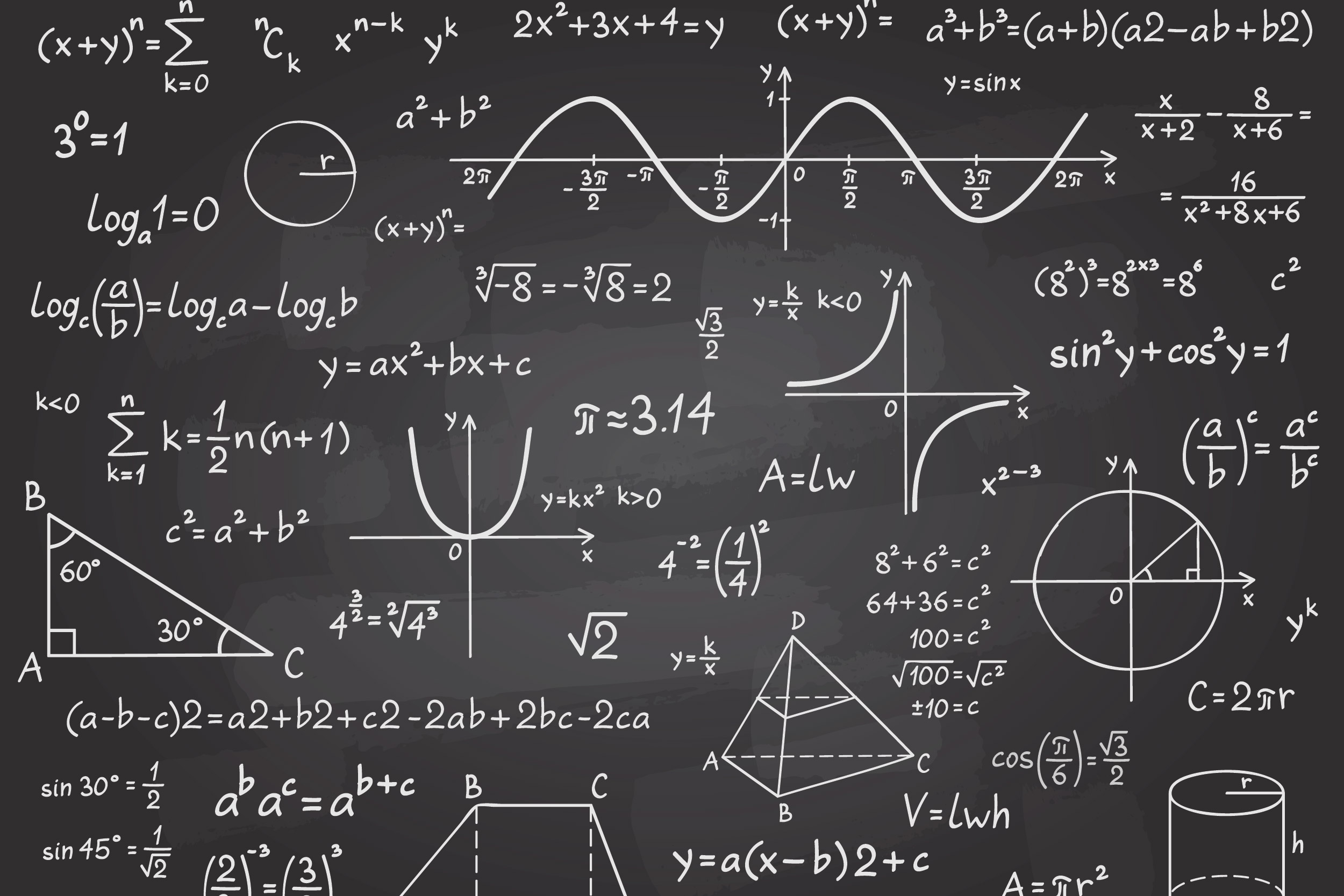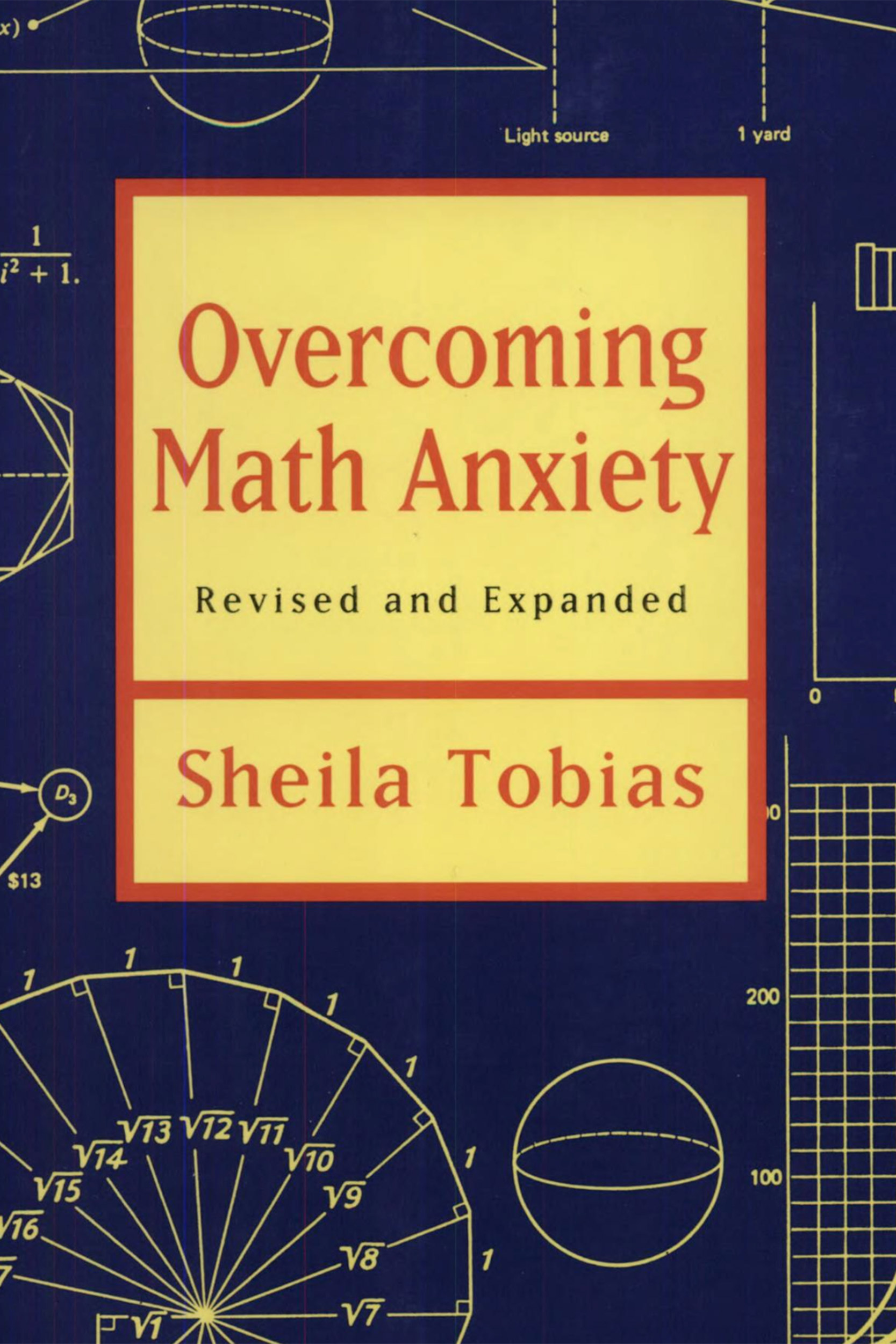
iStock by Getty Images
The myth of the ‘math person’
Anxiety illuminated by author and Radcliffe grad Sheila Tobias resonates with students, teachers almost 50 years later
In the 1970s, Sheila Tobias noticed something peculiar going on in mathematics. In one of her early studies, the graduate of Radcliffe College, self-described “scholar activist,” and author of 14 books, including the 1978 bestseller “Overcoming Math Anxiety,” gave elementary school students a sheet of paper, divided in half. On one side, they worked on a math problem; on the other, they wrote down how the problem made them feel.
“I’m finished,” one wrote. “Nobody else is. I must be wrong.”
Another wrote: “I’m not finished. Everybody else is. I must be wrong.”
Many remembered their parents saying something like, “Nobody in our family is good at math.” Others recalled the shame of standing at a blackboard, failing to solve an equation as their classmates heckled and laughed.

“Math anxiety is a serious handicap,” Tobias wrote in a 1976 article in Ms. magazine describing her findings. “It is handed down from mother to daughter with father’s amused indulgence. (‘Your mother never could balance a checkbook,’ he says fondly.)”
Today, math anxiety still smothers students — especially those who belong to groups historically underrepresented in the field — and there’s more at stake than a balanced checkbook. Threats like climate change, pandemics, and gerrymandering cannot be solved without math.
“You can’t begin to grasp those issues,” Tobias said in a talk at West Virginia University just one year before she died, in 2021, at the age of 86. (The death was not widely reported until a New York Times obituary appeared in September of this year.)
Almost 50 years have passed since Tobias, whose papers are held by Radcliffe’s Schlesinger Library, first described math anxiety’s impact on students — especially young girls and women. And yet, not much has changed. According to the cognitive scientist Sian Beilock’s 2019 Harvard Business Review article, “Americans Need to Get Over Their Fear of Math,” nearly half of first- and second-grade students say they are “moderately nervous” or “very, very nervous” about math, and a quarter of college students report moderate or high levels of math anxiety.
“Hating math seems to bring people together,” said Reshma Menon, a preceptor in Harvard’s mathematics department. “This isn’t just about my students. I’ll meet people at the grocery store or I’ll be in an Uber chatting with the driver. When I tell them I teach math, the immediate response is, ‘Oh my God, I used to hate math in school.’ Math anxiety is worldwide and very, very real.”
Math hatred, or what some call “math trauma,” is like the common cold: ubiquitous, tricky to trace, and hard to treat.
“There’s a genius myth in mathematics,” said Brendan Kelly, director of introductory math at Harvard. “There’s often this perception that success requires some natural ability, some unteachable qualities, some immutable traits.”
When students learn to write stories or play the violin, most don’t expect to replicate Toni Morrison or Niccolò Paganini in their first attempts. No one says, “I’m not a writing person.” But in math, said Allechar Serrano López, also a preceptor in mathematics at Harvard, “It gets decided when they’re literally children if they are going to be math people or if they’re not math people.” And because math is a gateway to almost every other field of science, that early stamp can squeeze students out of the STEM pipeline.
But the genius myth isn’t the only barrier.
Students come to college with vastly different educational backgrounds based on which elementary and secondary schools they attended. Some schools don’t even offer calculus, Menon noted. “During the pandemic, these differences became wider; the disparities are much more evident now than they were before,” she said.
Disparities across schools often disproportionately affect low-income students and students of color. “That divide creates lower confidence among students,” said Menon. “But there’s also the problem, generally, of women, students of color, and nonbinary students feeling like they don’t fit in.”
“There’s a genius myth in mathematics. There’s often this perception that success requires some natural ability, some unteachable qualities, some immutable traits.”
Brendan Kelly, director of introductory math at Harvard
Mathematicians might argue that math is a meritocracy based solely on whether a student can solve a problem or not. But that argument not only ignores imbalances in schooling and opportunities, it also lets teachers off the hook.
“The responsibility really should be mine to create the space where students feel that they can ask questions, share their ideas, and slowly become more confident and overcome their math anxiety,” said Menon.
That means smaller class sizes, collaborative group work, and extra attention paid to students who come from less-privileged schools or whose identity might make them feel less confident in their abilities.
“There’s a cultural change we need in our math education,” said Kelly. “It’s challenging to be vulnerable, right? To raise your hand and be wrong in the classroom is a hard thing. We need to create a space where it’s OK to be confused and to share that confusion.”
Tobias would agree. Back in the 1970s, she created a “Math Anxiety Bill of Rights,” which included: “I have the right to not understand,” “I have the right to dislike math,” and “I have the right not to base my self-worth on my math skills.”
Today’s students might add: “I have the right to be seen as a math person.”
Even Menon said she still struggles with impostor syndrome, despite having taught calculus for 10 years now. Serrano López failed exams and even classes on her way to becoming a mathematician and faculty member. And Michael Hopkins, the George Putnam Professor of Pure and Applied Mathematics and math department chair, admits that he spends much of his time in the dark.
“Most of the time, I’m in a state of ignorance,” he said. “I think the anxiety comes from not knowing what to do when you’re in a state of ignorance, but that’s a state I value greatly.”
Hopkins and other Harvard mathematicians see a pressing need for a cultural shift to make math education more welcoming and inclusive.
“Everything is at stake,” said Serrano López. “I come from a low-income family, and I have seen that access to education is vital for social mobility.” STEM careers not only pay more; they’re crucial in the fight against existential threats like climate change, nuclear war, and global diseases.
“If this planet is going to survive,” Tobias said, “we need more of the population to think like scientists. A majority don’t.”
“It’s not their fault at all, right?” said Menon. “It’s the way we’ve built the system that makes them feel completely unwelcome. It’s a huge problem if we lose so many talented and intelligent people to this kind of divide.”





